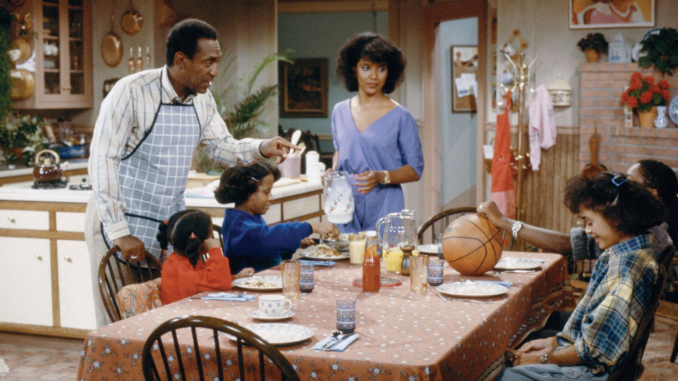
The Cosby Show premiered in 1984 and quickly became a defining force in television. For many, it remains a classic that continues to be celebrated for its groundbreaking approach to comedy, its portrayal of African American life, and its lasting impact on the entertainment industry. The show didn’t just entertain; it reshaped the way people thought about television and changed the direction of sitcoms forever.
A New Type of Family
Before The Cosby Show, most depictions of Black families on television were limited to caricatures or stereotypical portrayals. There was little room for the kind of nuanced, multi-dimensional characters that The Cosby Show brought to life. The Huxtable family, led by Dr. Heathcliff Huxtable (played by Bill Cosby) and his wife Clair (Phylicia Rashad), was depicted as an upper-middle-class African American family, not struggling with financial issues, crime, or other stereotypical burdens that were often thrust upon Black families in media. Instead, they were a loving, successful family living in a Brooklyn brownstone, with relatable problems like parenting, marriage, and career struggles.
The Huxtables, portrayed with warmth and humor, were a far cry from the portrayals that preceded them. Dr. Huxtable was a highly educated obstetrician, and Clair was a successful lawyer. The couple’s professional achievements were celebrated, showing that African American families could be prosperous and well-educated.
This was revolutionary at the time. Cosby and his team set out to present an idealized version of Black family life, but not in a way that felt out of touch with reality. While the Huxtables were certainly aspirational, their problems were real: raising children, balancing work and home life, and maintaining a strong relationship. It wasn’t about pretending that life was perfect, but about showing that Black families, like all families, could have successes and struggles alike.
A Shift in Television Storytelling
One of the key factors that made The Cosby Show so influential was its narrative style. Rather than relying on slapstick humor or contrived situations, The Cosby Show employed a clever mix of situational comedy and heartfelt moments. Episodes often centered around moral lessons, such as the importance of education, family unity, and hard work.
The show’s emphasis on character development and dialogue-driven humor was a departure from the typical sitcoms of the 1980s. Shows like Family Ties or Cheers had their moments of heartfelt comedy, but The Cosby Show took these elements and amplified them by portraying a family that, at its core, felt genuine. Its ability to blend humor with poignant life lessons made it unique in a landscape that was often dominated by laugh tracks and predictable punchlines.
Impact on African American Representation
The Cosby Show was revolutionary in its depiction of African American life. Prior to its airing, television had few positive representations of Black families. Characters in sitcoms like Good Times or The Jeffersons were often portrayed as struggling with socioeconomic issues, which reflected the reality of many Black families at the time. But what The Cosby Show introduced was an idealized version of Black life, which was something new and refreshing for the public to witness.
The show’s success created opportunities for other African American actors, writers, and directors, allowing more diverse voices to be heard in the industry. Shows like A Different World—a spin-off of The Cosby Show—also contributed to a new wave of programming that explored more diverse African American experiences. In this way, The Cosby Show not only changed the narrative for African American families on television, but also opened doors for more African American storytellers to be involved in the production of television.
The Show’s Legacy
As we look back on The Cosby Show’s impact, it’s clear that it was far more than just a popular sitcom. It was a cultural touchstone that changed the landscape of television, setting the stage for a new era of programming that would be more inclusive, thoughtful, and representative of diverse families. The Huxtables became an iconic family that many viewers still look up to, even decades after the show aired its final episode in 1992.
Today, the legacy of The Cosby Show is still felt in the television industry. From Black-ish to The Fresh Prince of Bel-Air, many of the sitcoms that followed owe a debt to the groundbreaking work that The Cosby Show did in representing African American families in a positive and multi-dimensional light.
Despite the controversies surrounding Bill Cosby’s personal life, The Cosby Show’s cultural impact is undeniable. It remains a beloved show for millions of viewers, and its portrayal of a successful, loving Black family continues to inspire generations of fans.
In conclusion, The Cosby Show didn’t just change television; it left a lasting legacy that still influences TV programming today. It brought forth new perspectives, broke down barriers, and made viewers laugh while providing important life lessons. It truly changed television forever.
